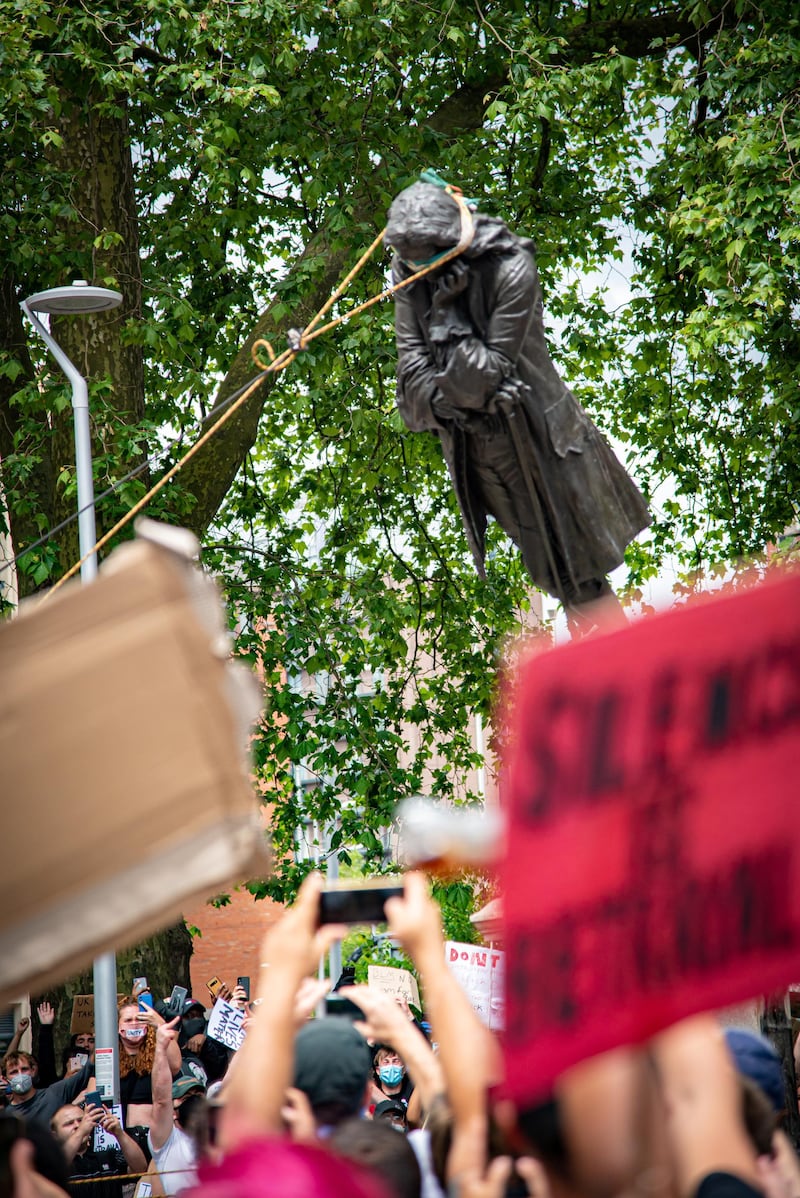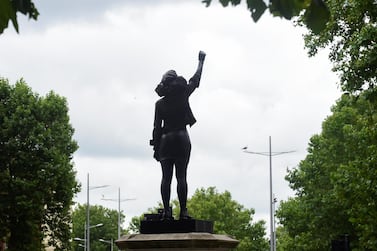The toppled statue of a 17th century slave trader will return to public display in Bristol alongside hate mail sent to the English city’s black mayor.
The statue of Edward Colston was ripped from its plinth and thrown into the city’s harbour during global protests sparked by the Black Lives Matter movement and the death of George Floyd in Minneapolis, US.
The toppling of the Colston figure as the most dramatic event of the UK protests that focused on the country’s colonial-era repression and its continuing impact on British society.
Edward Colston made his fortune from transporting thousands of people to the Americas in the late 17th century.
His statue was fished out of the harbour following the demonstration in June and is due to be rehoused in a Bristol museum, still bearing marks from the demonstration.
“The statue, having been thrown into the harbour, will still have the paint on it, it has the dents and the scratches,” Marvin Rees, the first directly-elected black mayor of a major city in Europe, told MPs on Tuesday.
The mayor said it was due to go on display within months, accompanied by material from the June protests and “even some of the threat letters that came to me in the aftermath of which there were many”, in an effort to provide a broader context to the life of Colston.
Mr Rees, who has been mayor of the city since 2016, said: “I can’t deny the statue was an affront to me and I recognise the historical poetry in it being rolled through the streets and thrown into the harbour.”
The city has set up a commission of academics to underpin an ssessment of city monuments. A music venue in the city, Colston Hall, was renamed the Bristol Beacon last month because of its links to the slave trader.
Mr Rees was giving evidence to MPs amid a re-think of how statues should represent British history and the role of slavery in British institutions.
UK conservation charity The National Trust revealed last month that 93 of its historic properties had links to colonialism and slavery.








